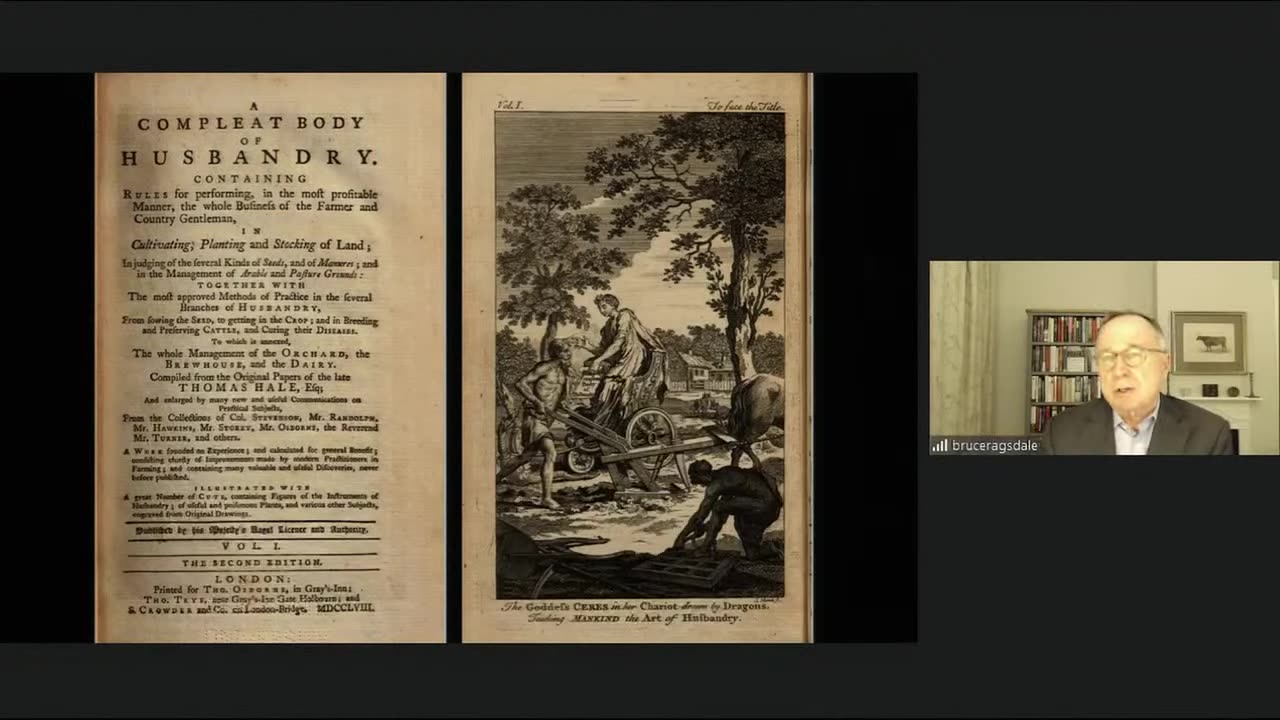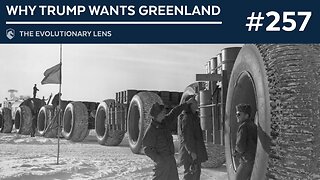Premium Only Content

Washington at the Plow The Founding Farmer and the Question of Slavery
Author Bruce A. Ragsdale takes a fresh, original look at George Washington as an innovative land manager whose singular passion for farming would unexpectedly lead him to reject slavery. Washington spent more of his working life farming than he did at war or in political office. Washington at the Plow depicts the “first farmer of America” as a leading practitioner of the New Husbandry, a transatlantic movement that spearheaded advancements in crop rotation. Slavery was a key part of Washington’s pursuits, and he saw enslaved field workers and artisans as means of agricultural development. But Washington eventually found that his inability to reconcile ideals of scientific farming and rural order with race-based slavery led him to reconsider the traditional foundations of the Virginia plantation. As Ragsdale shows, it was the inefficacy of chattel slavery, as much as moral revulsion at the practice, that informed Washington’s famous decision to free his slaves after his death.
For live-only captions: https://www.streamtext.net/player/?event=Washingtonattheplow17977
Fair Use Disclaimer:
All content that uses public funds by any US government agency, state, or local government is available for worldwide use and reuse under the terms of the Creative Commons CC0 1.0 Universal license. Included within these resources may be copyrighted material(s), the use of which has not always been specifically authorized by the copyright owner. Any copyrighted content used is for educational, research, reporting, commentary, entertainment, informational, and criticism purposes.
In our efforts to provide the Rumble community with quality content that is “fair use,” this content is covered under Section 107 of the Copyright Act ( https://www.copyright.gov/fair-use/ ).
If you wish to use this copyrighted material for purposes that go beyond “fair use,” you must obtain permission from the copyright owner.
If you believe that any copyrighted materials appear in this content and you disagree with our assessment that it constitutes “fair use,” please get in touch with us.
-
 2:46
2:46
BIG NEM
15 hours agoDiscovering RAKIJA: The Holy Liquer of the Balkans
29.2K3 -
 1:11:38
1:11:38
Film Threat
20 hours agoCHRISTMAS DAY CHILL STREAM WITH CHRIS GORE | Hollywood on the Rocks
148K33 -
 14:22:40
14:22:40
The Quartering
1 day agoYule Log Christmas MAGA Edition With Memes! Come Hang Out!
236K32 -
 38:41
38:41
MYLUNCHBREAK CHANNEL PAGE
1 day agoTimeline Begins in 1800? - Pt 1 & 2
115K71 -
 1:23:41
1:23:41
Game On!
1 day ago $13.99 earnedNetflix NFL Christmas Games Preview and Predictions!
98.9K13 -
 2:05:07
2:05:07
Darkhorse Podcast
1 day agoWhy Trump Wants Greenland: The 257th Evolutionary Lens with Bret Weinstein and Heather Heying
327K906 -
 8:50:58
8:50:58
Right Side Broadcasting Network
1 day ago🎅 LIVE: Tracking Santa on Christmas Eve 2024 NORAD Santa Tracker 🎅
423K71 -
 2:48
2:48
Steven Crowder
1 day agoCROWDER CLASSICS: What’s This? | Nightmare Before Kwanzaa (Nightmare Before Christmas Parody)
370K13 -
 33:49
33:49
Quite Frankly
1 day agoThe Christmas Eve Midnight Telethon
152K31 -
 2:12:46
2:12:46
Price of Reason
1 day agoAmber Heard BACKS Blake Lively Lawsuit Against Justin Baldoni! Is Disney CEO Bob Iger in TROUBLE?
95K27